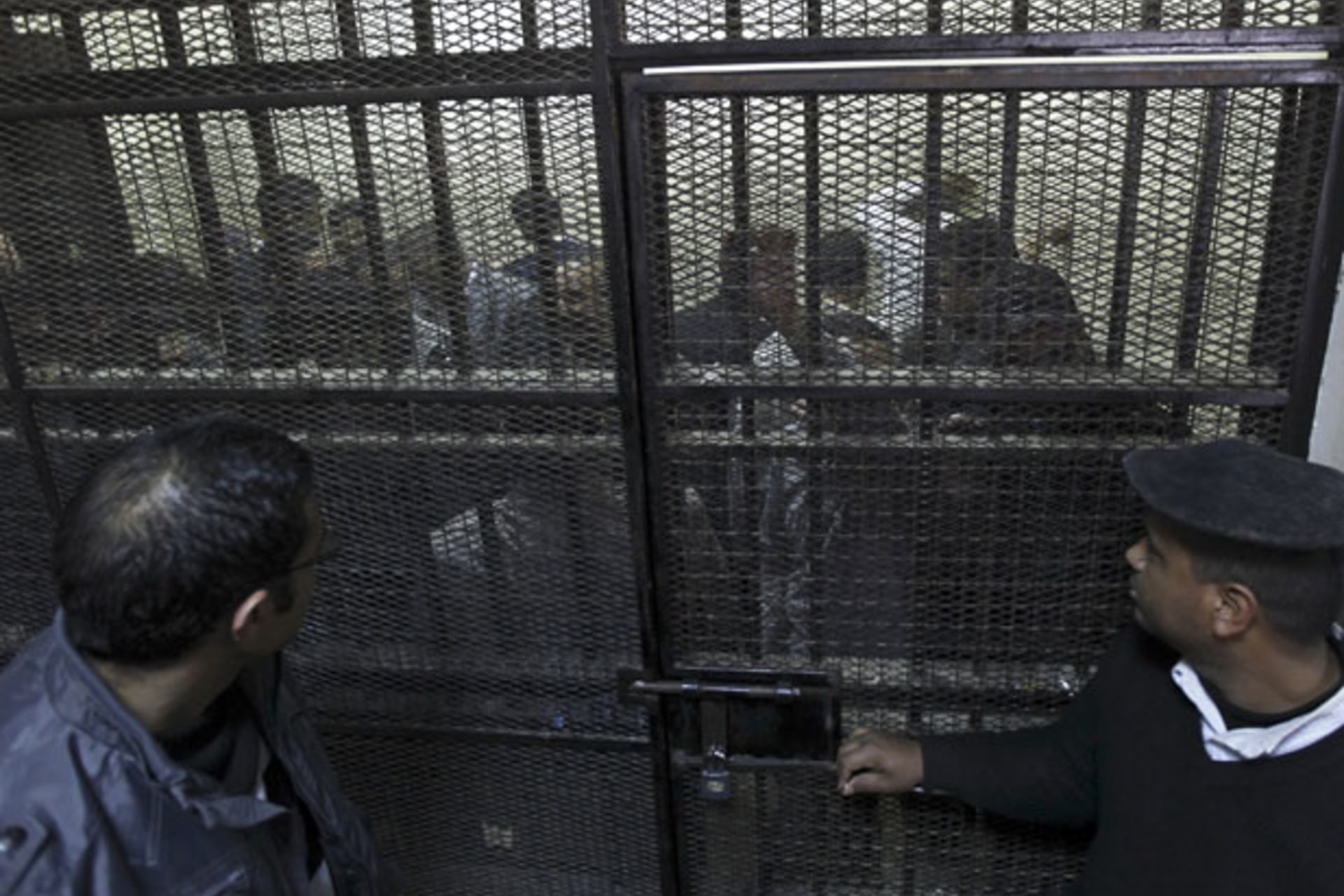Egypt: Being Fayza Aboulnaga

By experts and staff
- Published
Experts
![]() By Steven A. CookEni Enrico Mattei Senior Fellow for Middle East and Africa Studies
By Steven A. CookEni Enrico Mattei Senior Fellow for Middle East and Africa Studies
On Saturday, the Washington Post published an op-ed under the byline of Egypt’s Minister of International Cooperation, Fayza Aboulnaga, titled, “Why Egypt moved against unregistered NGOs.” The Minister’s defense of her government’s actions is what one would call “lawyerly.” The NGOs were not registered under Egypt’s Law 84, there is evidence of wrongdoing, and no other government in the world would permit unregistered foreign and domestic NGOs to undertake the types of activities that Freedom House, the National Democratic Institute, the International Republican Institute and three Egyptian organizations were engaged in. Yet, at its base, the issue is not a legal one. Rather, it is political and the NGO affair suggests that neither Aboulnaga nor the Supreme Council of the Armed Forces—the Minister is widely believed to be close to Field Marshal Hussein Tantawi—are very much interested in paving the way for a democratic Egypt, despite protestations to the contrary. That is not to suggest that NGOs, like those currently under fire, will be a linchpin of an Egyptian transition to democracy, but civil society groups as a whole make up part of the fabric of democratic societies. Destroying some of them through the legal system (which, in Egypt’s case, is geared more toward political control than justice) and thereby intimidating other non-governmental groups in the process reflects the open secret of Egypt’s transition—the inherently authoritarian worldview of the SCAF and its civilian allies.
To be sure, there are legitimate arguments about the wisdom of Washington’s efforts to promote change in Egypt given the revolutionary narrative about U.S.-Egypt relations. There are also whispers among Americans (both official and non-official) worrying that despite their good intentions and laudable goals, groups like the National Democratic Institute, International Republican Institute, and Freedom House are, in unintended ways, contributing to Egypt’s present political instability. That is to say that the presence of these groups and U.S. funding for Egyptian non-governmental organizations provides Minister Aboulnaga and her political masters an opportunity to shred the NGO sector in the name of Egyptian nationalism. This political strategy, in turn, feeds a latent Egyptian xenophobia resulting in spectacles like the trials of people working to bring democracy to Egypt even though that is the stated goal of the authorities, the absurd evidence marshaled to bring them to trial, attacks on embassies, and not-so-subtle official intimidation of foreigners working in Egypt. As I have written elsewhere, I am sympathetic to this argument, which is why the United States should wind down the aid program and alter the way it does business with the Egyptian armed forces.
Everywhere I have been recently talking about Egypt—Boston, Los Angeles, San Francisco, Seattle, Dallas, Houston, and Salt Lake City—someone asks some variation of the following questions on the NGO affair, “Why would the Egyptians do this given American generosity? Shouldn’t they want Washington’s assistance?” The short answer is politics. There is a need for Egyptian leaders and politicians, especially those associated with the Mubarak era like Fayza Aboulnaga, to demonstrate distance between themselves and the policies of the previous era. As Aboulnaga freely admits, Mubarak didn’t like the U.S. policy on NGOs and he resisted it mightily. Yet even at his worst—remember the case against the Ibn Khaldun Center for Development Studies, its founder, Saad Eddin Ibrahim, and 27 employees—the former Egyptian president never went so far as to challenge the Washington in the way that the SCAF and Aboulnaga have done.
The more interesting answer has nothing whatsoever to do with Fayza Aboulnaga or the SCAF or anyone else for that matter, but instead the incongruous position between the myths of Egyptian nationalism and the need/desire for external assistance. Indeed, there is a tendency to personalize the issue—in Washington, Aboulnaga is often referred to as the Minister of International Non-Cooperation, duplicitous, a liar, and far worse. Yet if she didn’t exist, the Egyptians—at least those who supported Mubarak and now the SCAF—would have to invent her. Aboulnaga plays a critical role in trying to square the circle between a regime whose legitimacy rests in part on nationalist claims and whose leaders are ostensibly Egyptian nationalists par excellence, but nevertheless cannot seem to do without American largesse.
What better way to mask the fact that you are lobbying furiously to maintain U.S. assistance even going so far as to ask Israeli fixers—Israelis!—to press the Obama administration and Congress not to cut the assistance than playing on the fears of an Egyptian population that is wary of foreign influence in their country? That’s why when American ambassador Anne Patterson took up her post last summer she was greeted with a fusillade of invective from the state press including a gruesome cover on the magazine October—readership nil—referring to her as “the ambassador of hell.” This is not, however, a pathology of post-Mubarak Egypt only. In 2004, when the late Congressman Tom Lantos sought to shift a third of Egypt’s military aid to its annual allotment of economic support funds, the Egyptians went into overdrive in Washington to prevent the change in the aid program and in Cairo to portray Lantos’ effort as an effort to undermine Egyptian national security.
It is risky business for the Egyptians, but this is the conundrum they have confronted for decades and is a legacy of Anwar Sadat’s re-orientation of Egyptian foreign policy toward the United States specifically and the West more generally. It was a policy that just did not make sense to Egyptians who either remembered the British occupation or had been weaned on either “positive neutralism” or alignment with the Soviet Union. Consequently, four decades after Sadat’s shift you get Fayza Aboulnaga whose main job it seems is helping to secure American aid while running against it all at the same time. Ultimately, in light of the Minister’s words about “deep, fundamental changes…occurring in Egypt” her mutually exclusive efforts are no longer sustainable. Aboulnaga used to be able to use Egyptian public opinion as a prop when tangling with Americans over the aid, but now that public sentiments means something, squaring that “we want the aid even though we are great Egyptian nationalists” circle is going to be harder than ever.
